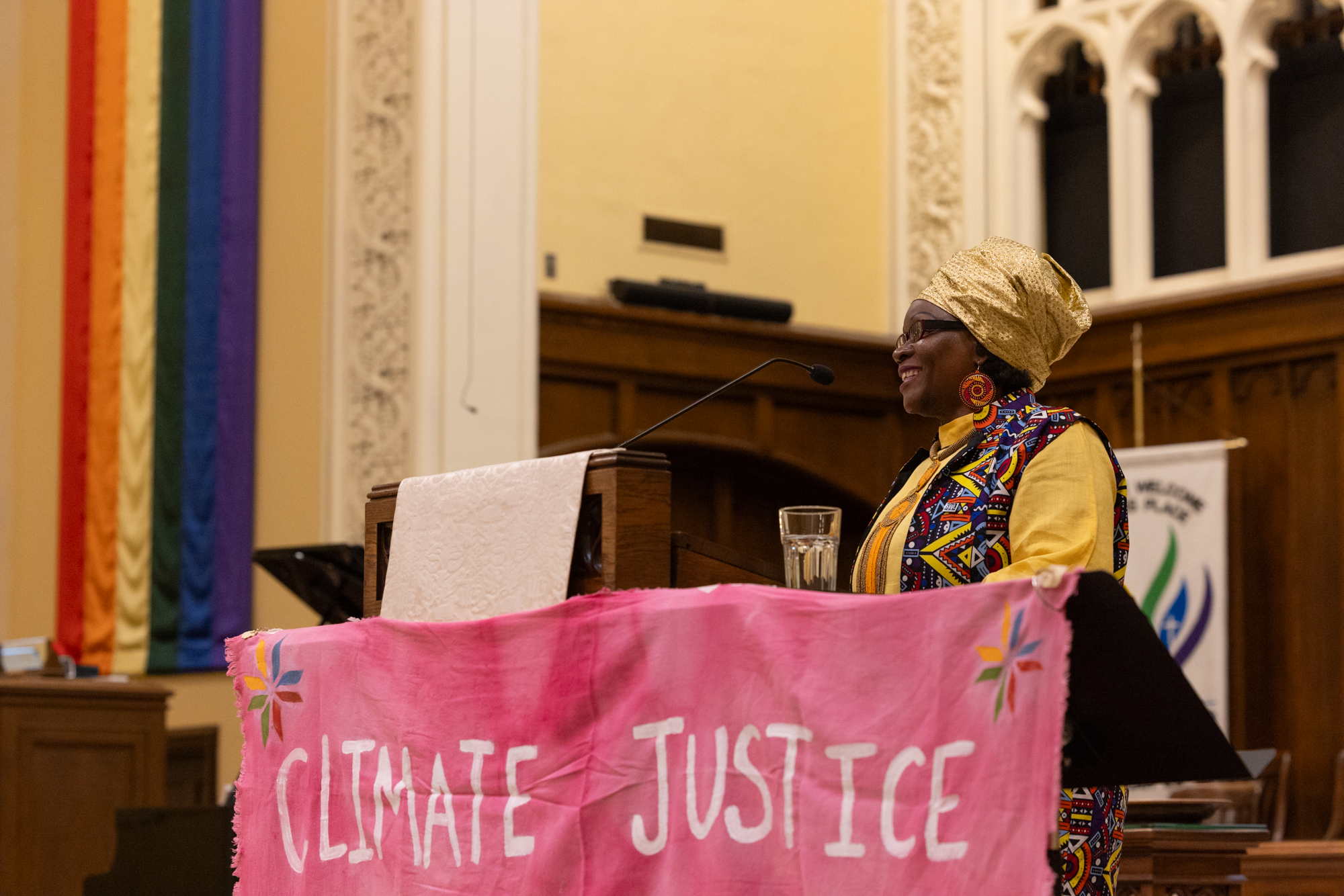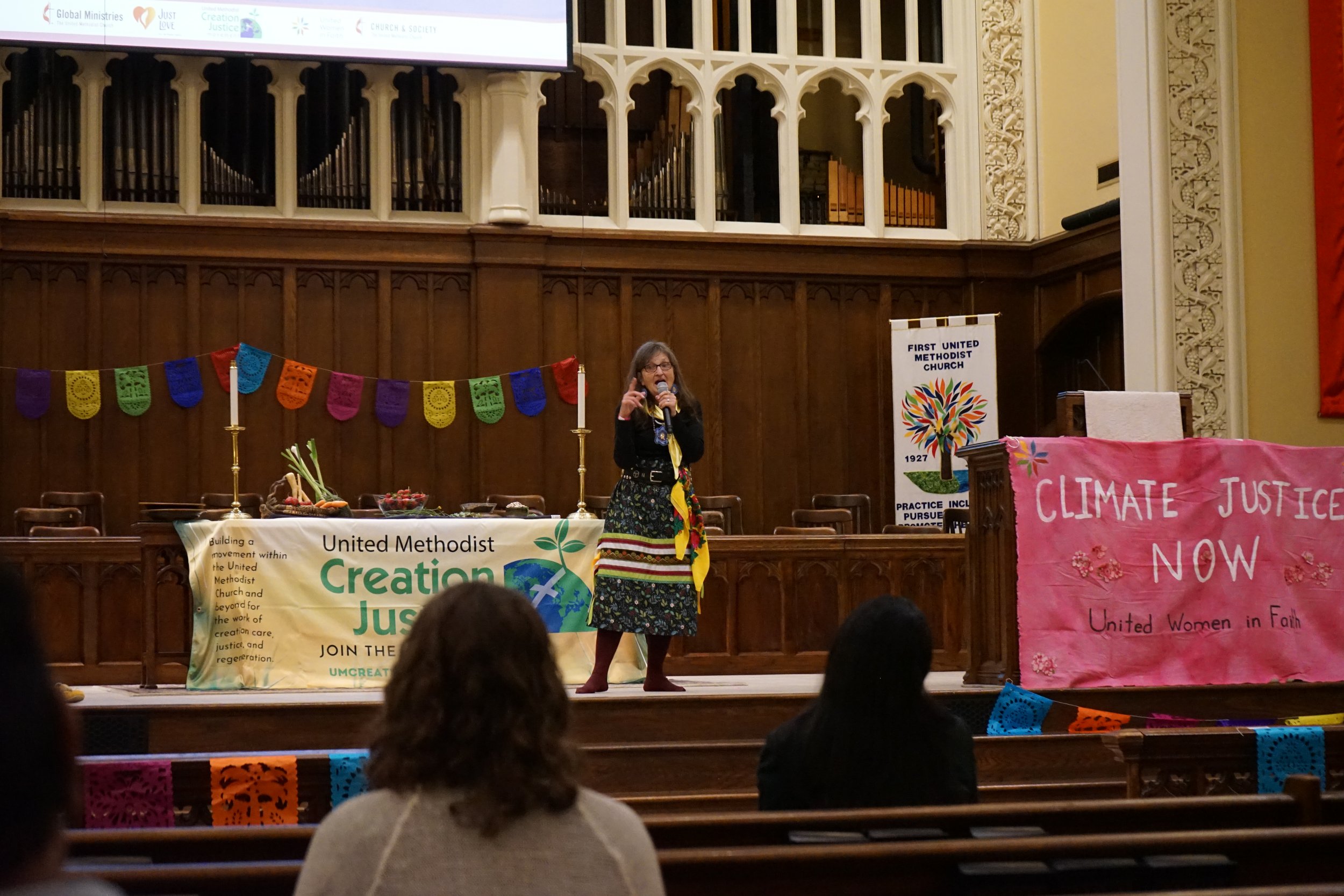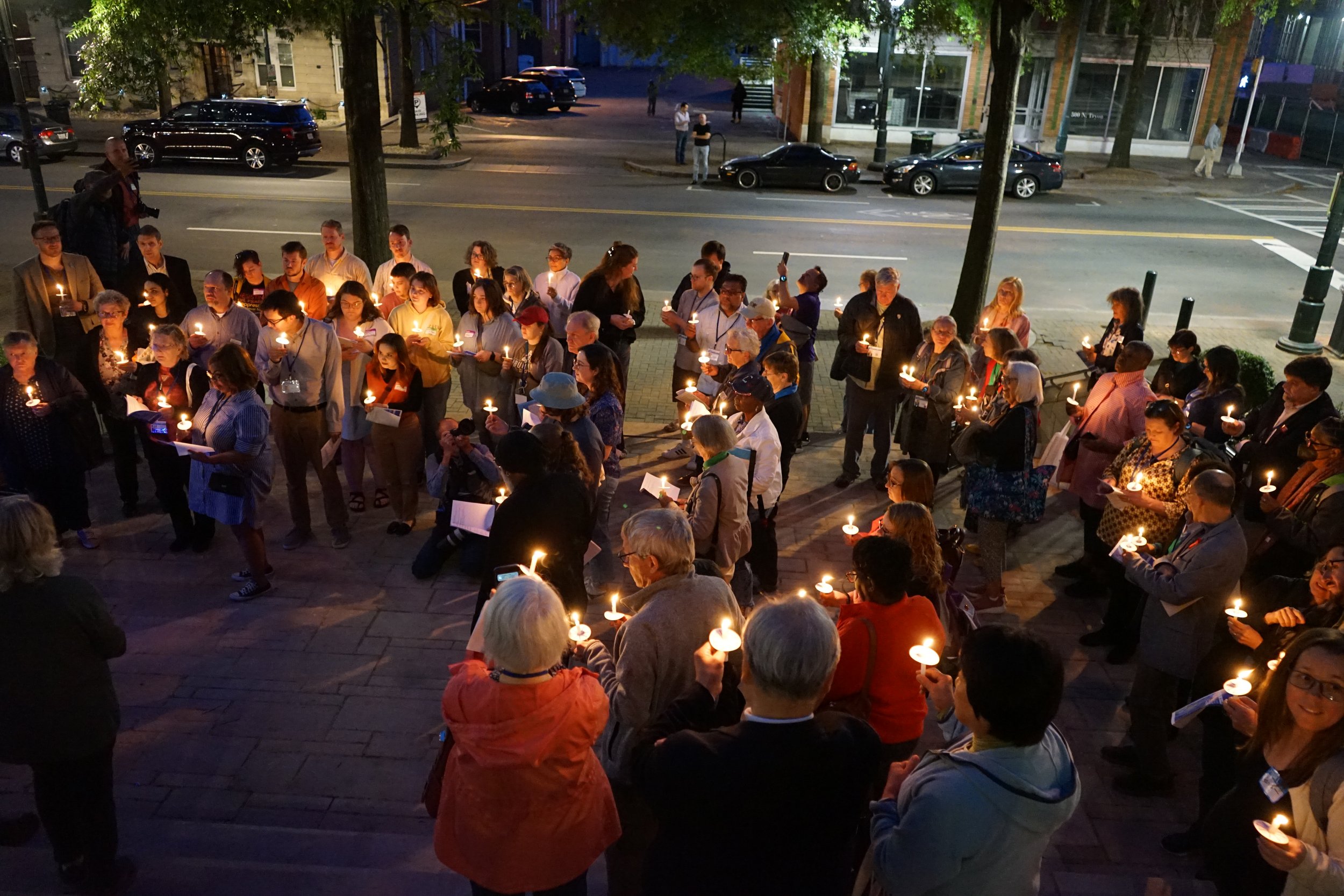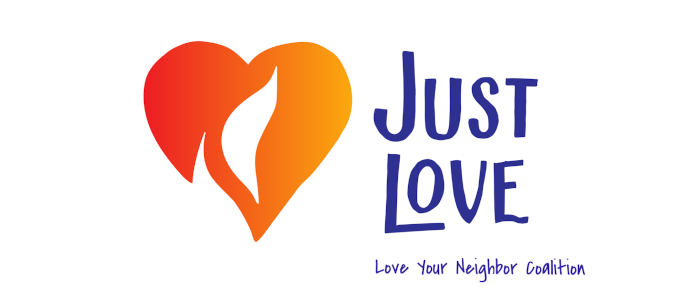A Journey of Conviction: The Earth Day Vigil and Creation Justice in The United Methodist Church
By: Rev. Richenda Fairhurst of the United Methodist Creation Justice Movement



On Monday, on the eve of General Conference, United Methodists gathered at First Church in downtown Charlotte to share their conviction that The United Methodist Church must take necessary, faithful action—urgently—for creation justice.
The journey for creation justice in the church began in the 1930s and 1960s with recognition of the importance of good stewardship of soil and natural resources. On Earth Day in 1970 at General Conference, delegates resolved to address the current “ecological crisis.” And a decade later, in 1980, delegates met concerns about global warming with a call for energy policies that would respect God’s creation. That was 43 years ago.
Cathy Velasquez Eberhart is a leader in The United Methodist Creation Justice Movement carrying forward a near 100-year tradition of care for creation in the church. She has noted on many occasions that while the church has offered “many beautiful words” when it comes to addressing the environmental crisis, the denomination is still not living up to its faith, nor living into its own faith commitments.
The United Methodist Creation Justice Movement set out to change that. Among them are faithful stewards who have cried out for the Earth for decades within the church. Rev. Pat Watkins, Michael Black, Dr. Daniel Joranko, Mike and Sherie Koob, Jaydee Hanson, to name just a few, all of whom were among those who led the planning of the Earth Day Vigil, and who are among hundreds more United Methodists working across the denomination to ensure the “words” of the church become indeed the “Word” of the church.
The evening began with a dinner, as Earthkeepers, trained and commissioned through Global Ministries, gathered for a meal, for prayer, and for fellowship. Rev. Jenny Philips and Rev. Jonathan Brake led the organizing for the meal. Those offering welcome and prayer included General Board of Global Ministries (GBGM) General Secretary Roland Fernandez and Bishop Hee-Soo Jung of the Wisconsin Annual Conference, president of the GBGM board of directors who declared, “there is no heaven if there is no Earth.”
This sentiment of no heaven without Earth would be echoed during the Earth Day service by Dr. Musa Dube, Distinguished Scholar of New Testament at Chandler School of Theology, Emory University, who offered the message. She spoke of God’s work of creation forming both the heavens and the earth. When the waters parted and heaven and earth formed, the Earth too reflected God, for every rock, every flower, every flowing stream is evidence of the Word of God, the being of God, and the presence of God.
As the crisis deepens, collaboration grows. The United Women in Faith (UWFaith) have a long history of stewardship and justice. Ilka Vega, UWFaith’s executive for economic and environmental justice, led the organizing for the service along with Rhaggi Rain Clementine, chair of The United Methodist Church’s Native American International Caucus. Other contributors to the service included Rev. Nancy Blade and Dan Joranko, liturgy; Grace Hubbard and Rev. Jonathan Brake, music; and Didier Monga, Karen Prudente, Earlie Paison, and Britton Stacey, while Rev. Laura Baumgardner near Seattle, Washington, stewarded the online zoom.
Over the last 5 years the journey of The United Methodist Creation Justice Movement brought together Methodists across the denomination, building networks and partnerships, and seeking opportunities for witness, for collaboration, and for building community. Partnerships blossomed, from volunteers, task forces, green teams, Fossil Free UMC, the Love Your Neighbor Coalition, United Women in Faith, Global Ministries, Church and Society, Methodists for Social Action, and other UM boards and agencies and more.
The Earth Day Vigil for Creation was as much a worship service for Earth Day as it was a declaration that The United Methodist Church must honor its Word and commit to the work of creation justice. It must pass vital legislation at General Conference, and meet the moment for the work of wide and urgent justice into which it is being called.
The dinner, the service, and the candlelight vigil took place in Charlotte on Earth Day, but stretched that evening across the denomination with people gathering online, as well as hosting livestream viewing and events in local churches. For those who missed the service, the livestream is still available for viewing on The United Methodist Creation Justice Movement’s Facebook page and on the Earth Day Event Page. For more information about the movement and its many partners, see umcreationjustice.org.
